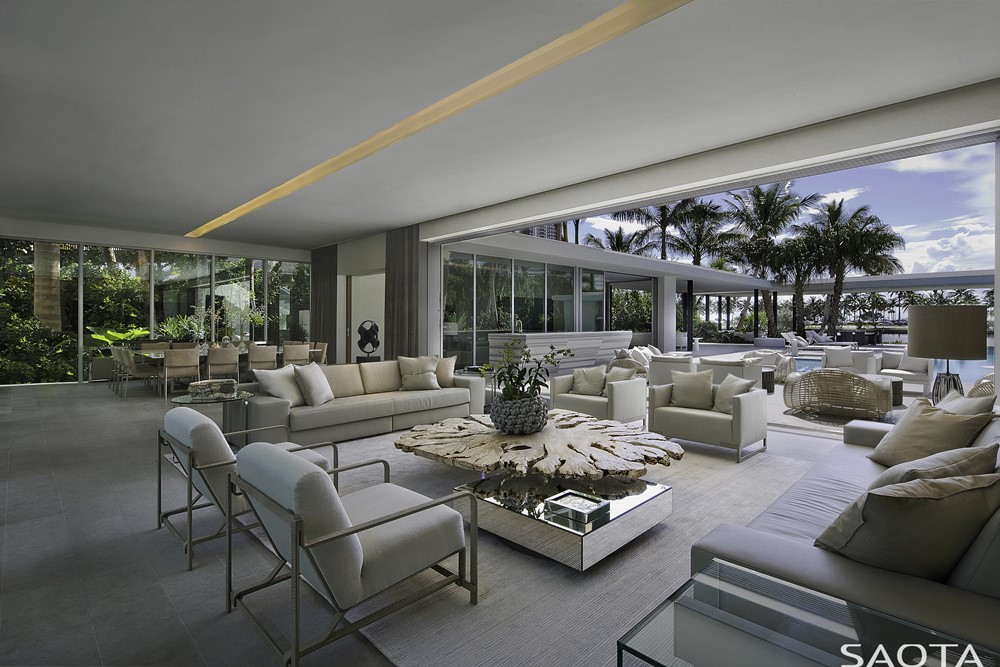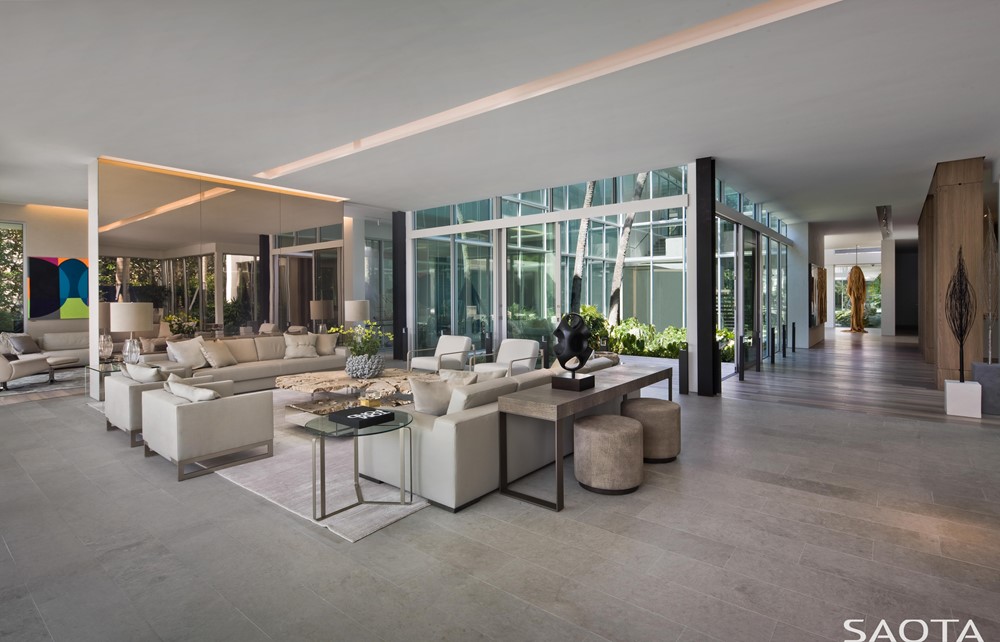Pine Tree is SAOTA’s first project to be completed in Miami. SAOTA’s design DNA is derived from the South African way of living which places an emphasis on the outdoors as people live both in and through their homes. Captivated by the Miami climate and landscape potential the design embodies these principles; creating a landscape of experiences.
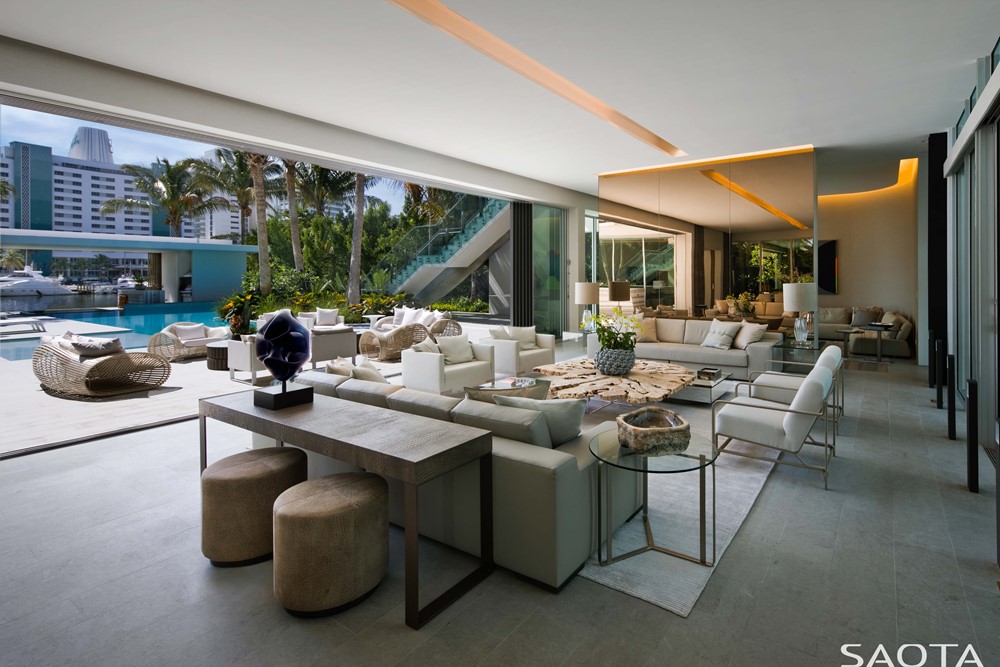
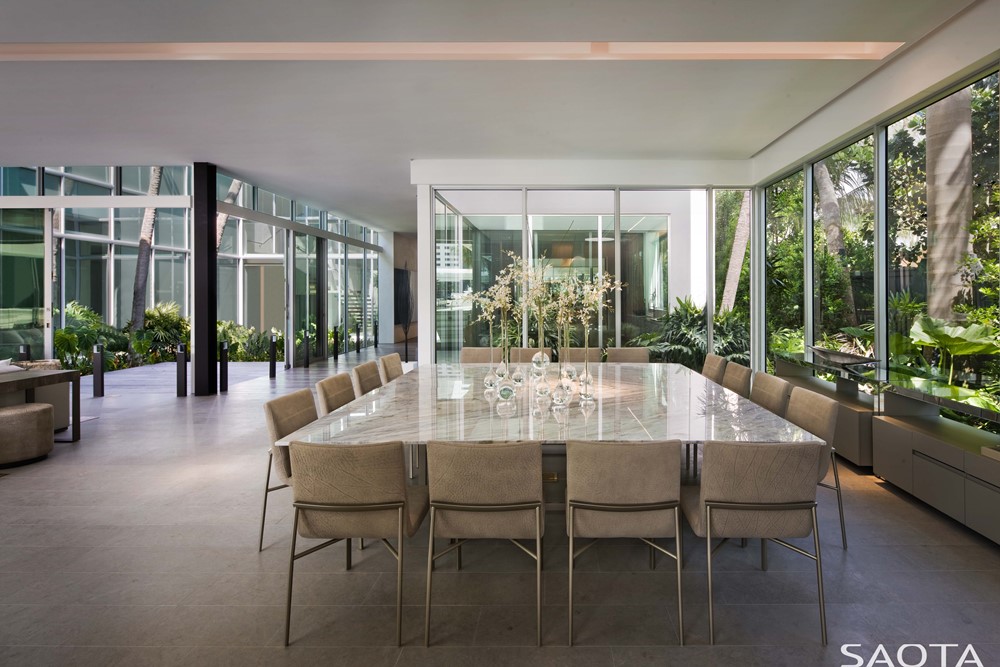
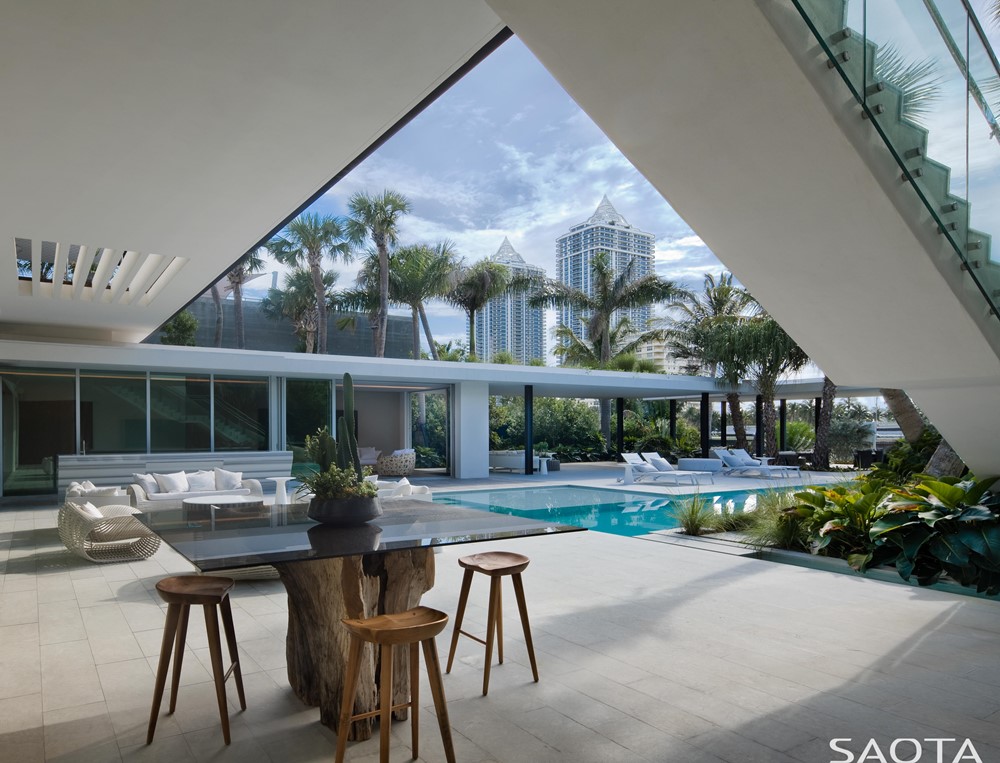

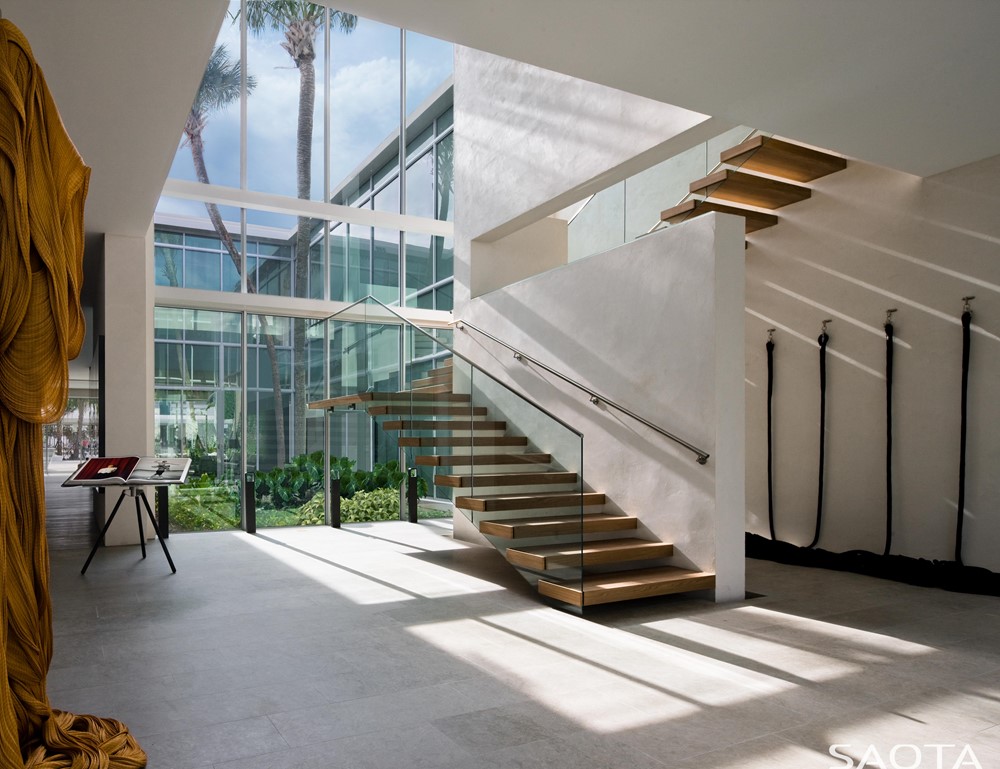

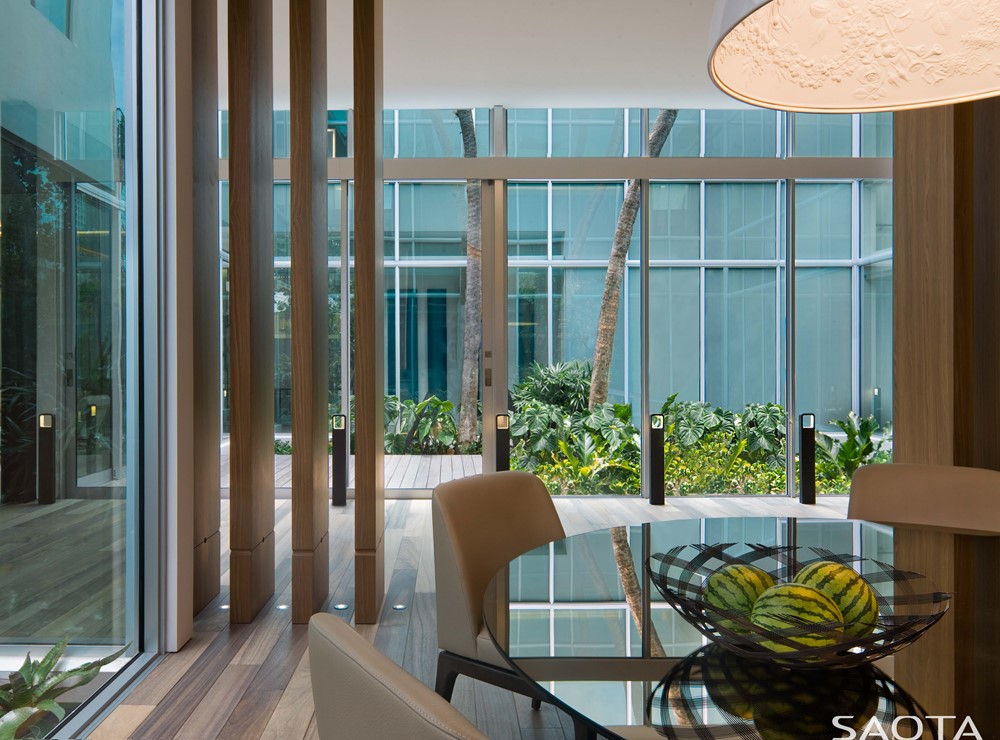
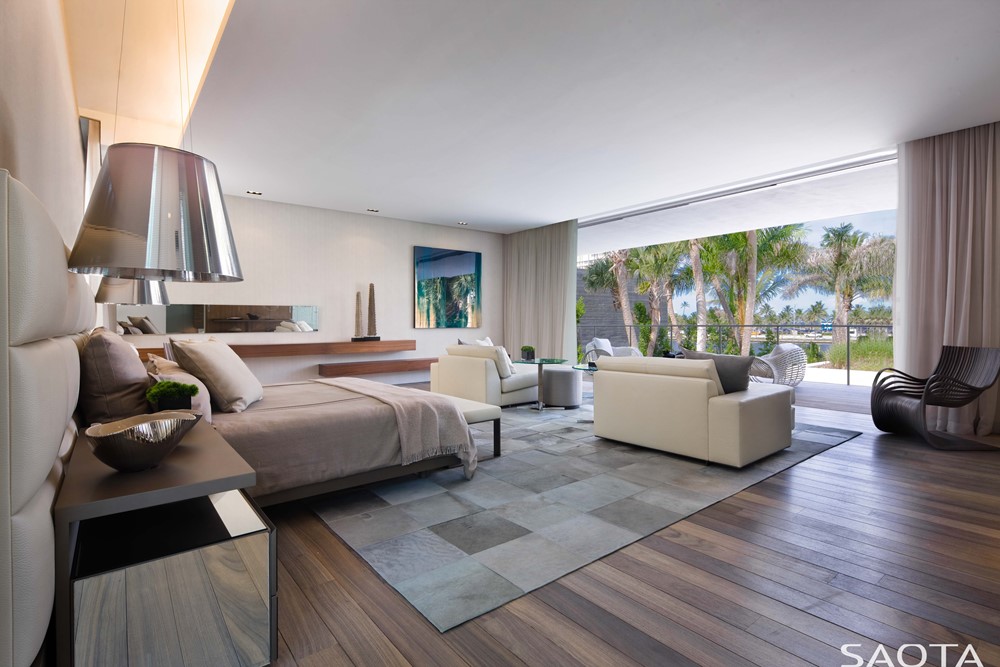



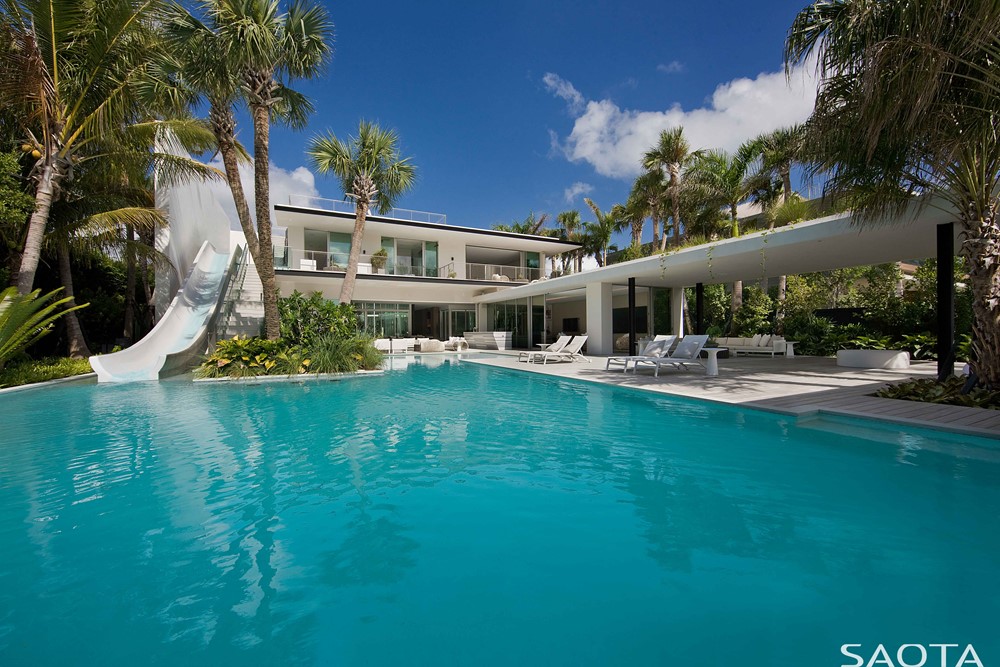
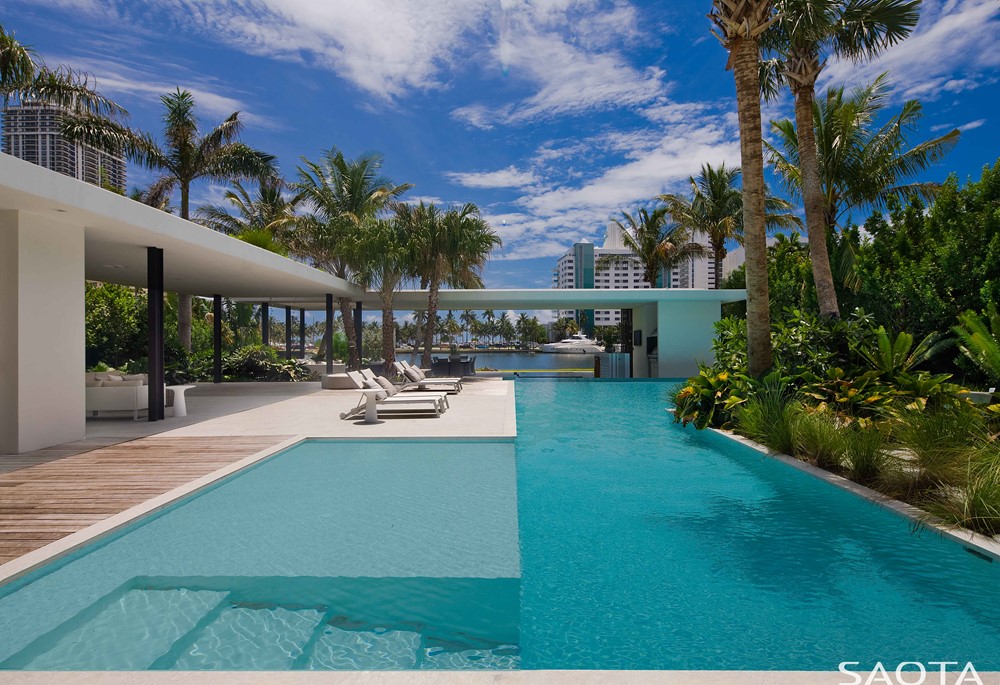
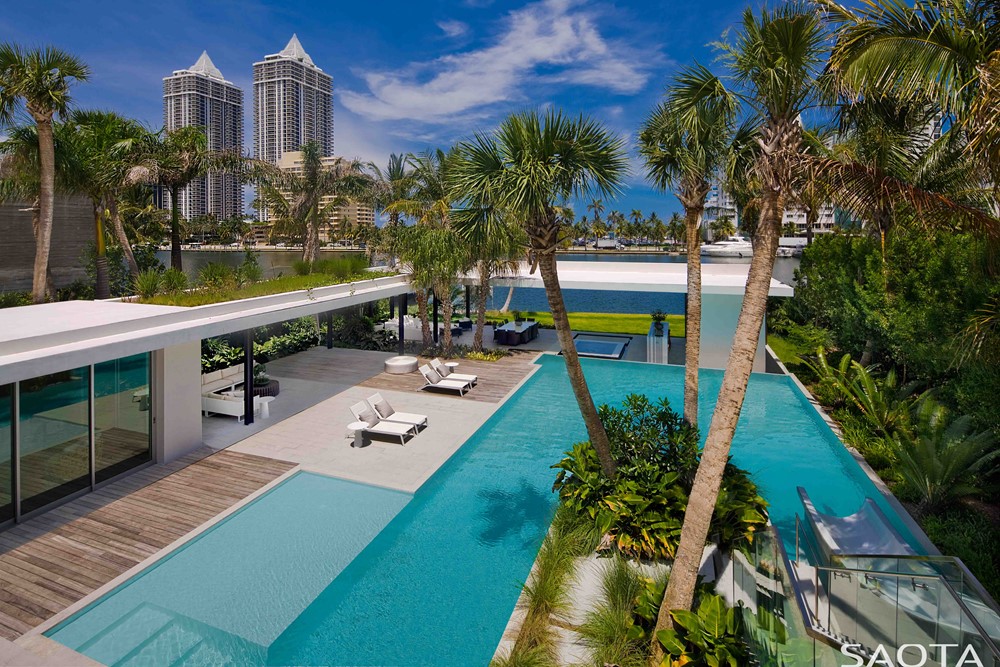
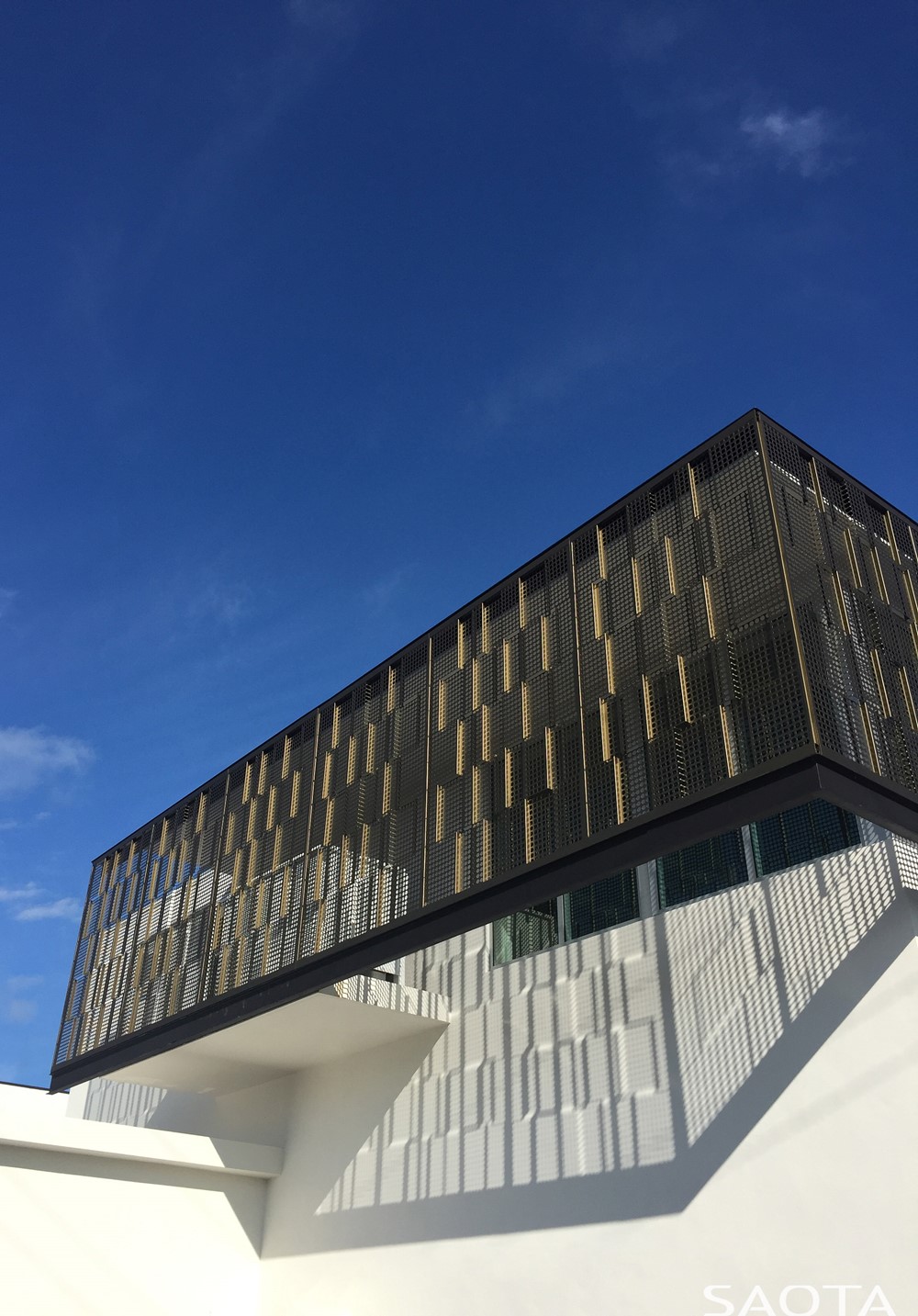
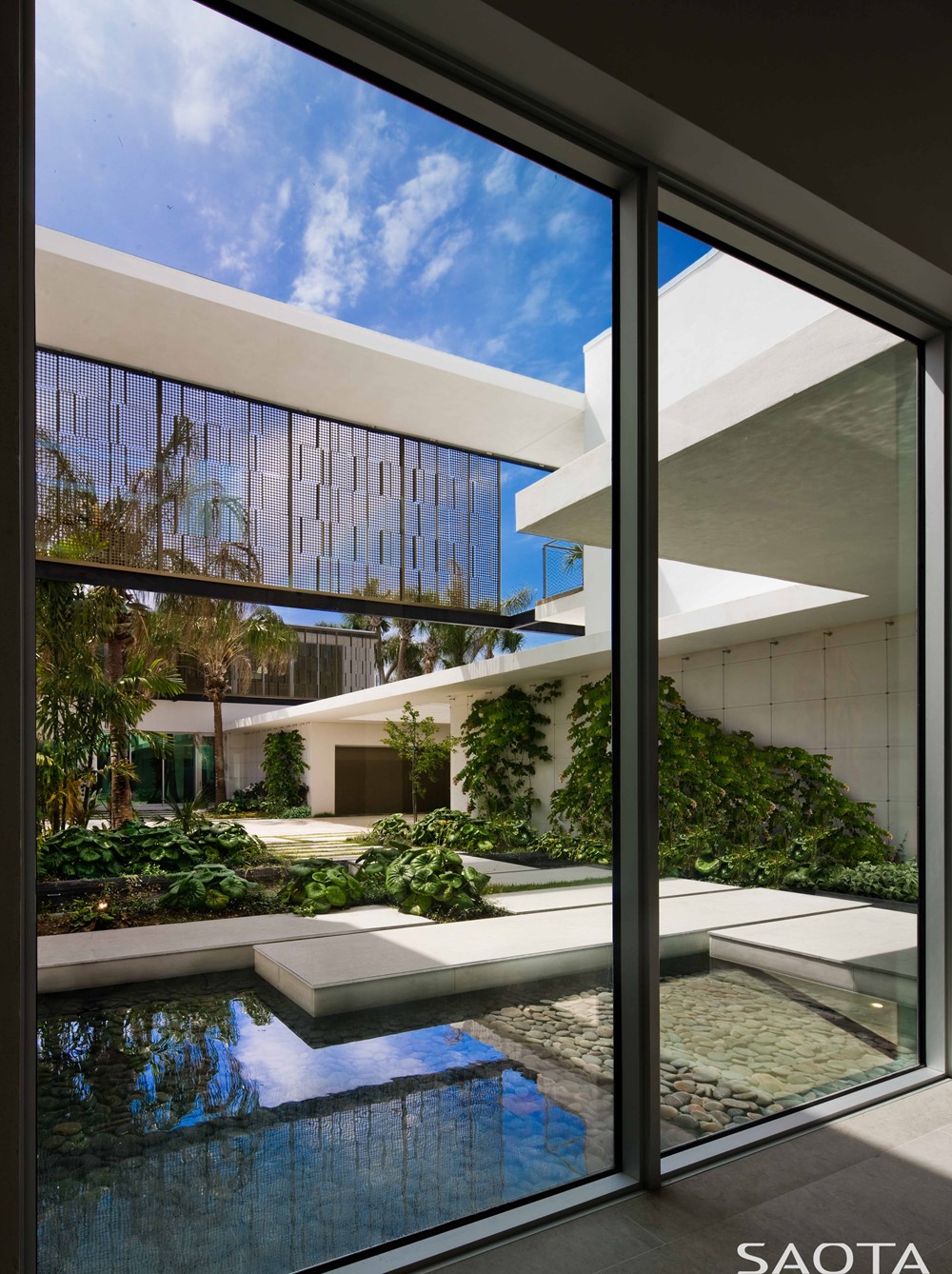
With the challenges of a strongly linear proportioned site, SAOTA sought to spread the program across the site as much as possible. In direct contrast to a typical approach of a singular building element on the property, the design is porous, bringing the landscape into the interior of the house. Through the introduction of a collection of introverted and extroverted courtyards, all aspects of the program have an immediate relationship to the outdoors.
On a practical level; the property is located between a busy road and a waterway; the waterway itself fronting onto a road.
The design is as much about containment as it is about the views through it. The multi-purpose basketball court creates a buffer to Pine Tree Drive, while creating a suspensive arrival experience as the user enters into the grand, serene forecourt. The bookmark in the rear of the property is a pool pavilion, a structure that provides a space for people to enjoy the immediacy of the water, both the pool and the waterway.
Visually it’s a privacy device from the waterway, and restricts views into the pool area.
The concept of containment is perhaps best embodied in the screens that cloak the building. Primarily born out of the functional need for privacy and solar control; their application evolved to something far more significant as CNC punched anodised aluminium becomes architectural jewellery. The screens play with the character of light, heightening the experience of enclosure and transparency. In some instances they define spaces as with the double volume nature of the entrance, in others they facilitate the bedroom terraces becoming part of the bedroom – private, protected sanctuaries.
Where the screens are iconic and loud, the finishes are assertive but restrained. A key intent was to implement a finishes palette that was controlled and continuous, limiting the materials to a core few wherever possible. This ensured a cohesion both between spaces, but also the internal and external connections. It’s refined in a way that the spaces are comfortable in which to live.
Whilst the overall architectural design is a key focus of the SAOTA design team, this becomes secondary to the primary function of how the design will be actually be used. This drives how areas are positioned and connected; how the house lives.
This approach may seem counter intuitive to most architects however, prioritising use and function is one of the main reasons for SAOTA’s international success.
This approach extends to the outdoor spaces; a great deal of time and effort went into the design of the rear pool courtyard.
Understanding the use of the spaces; how the pool will be used and when; the space further animated by a series of events; whether that be the hot tub, BBQ, Bar, or a waterslide – the brainchild of Barry Brodsky himself. Working with Raymond Jungles was an excellent experience for SAOTA as his relaxed, confident and freehand approach to landscaping resulted in a natural environment that truly reflects Miami. His input has added another dimension to the project.
Project Location: Miami, United States
Architects: SAOTA
Project Architects: Philip Olmesdahl, Mark Bullivant & Andrew Moerdyk
Architect of Record: DVICE Inc. – Dan Ritchie
Contractor: Brodson Construction
Interiors: Nils Sanderson
Lighting Consultant: Lux Populi
Landscaping: Raymond Jungles
Project Photographer: Dan Forer
